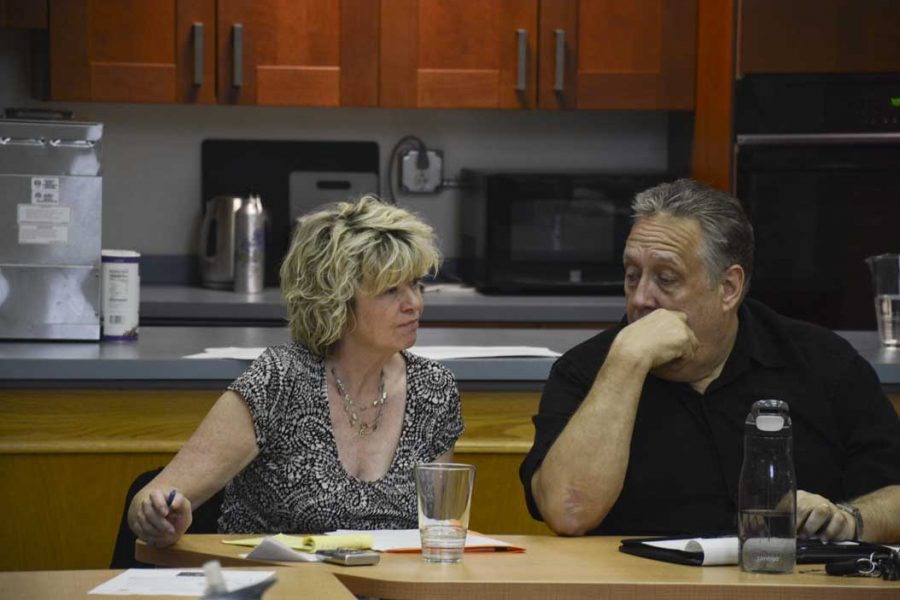John Wilds believes Pitt has built itself a refined reputation.
“If you come to Pitt, it’s not a party school. The academic programs are rigorous,” Wilds, a Community Outreach and Partnership Center official at Pitt, said during Oakwatch’s most recent meeting. “So if you want to party, go to West Virginia.”
Laughter followed his quip. But for Hanson Kappelman, a co-founder of the hosting community activism group, the consequences of partying students don’t end in a knee-slapping good time.
“People need to have safe and effective ways to socialize” Kappelman said, but he clarified that they can’t “disrupt the neighbors” in the process.
Kappelman says that he and many other groups, including student, university, governmental and activist groups, met “on a regular basis…for a couple years” to discuss the problems of party culture in Oakland and methods to cope. But those meetings have “fallen by the wayside”.
Wednesday’s meeting in the small tan building at the corner of Semple and Louisa was to tackle the issue of the “unofficial night time economy”, made up of “disruptive alcohol fueled parties”, as Kappelman said. To help explore the topic, he brought in Allison Harnden, the City of Pittsburgh’s Nighttime Economy Coordinator.
The group’s main solutions were threefold. Incoming students should be taught how to coexist with the permanent residents. Private business should be encouraged to offer alternative entertainment to house parties. And police should work together with community members to ensure informed law enforcement.
Teaching the young and temporary residents isn’t just a job for the universities according to Kappelman. But they have a role, as do all the institutions influencing students treatment of their new home.
“The more coordinated the message is, the more it’s going to sink in,” Kappelman said. “If it’s someone at every university, every police zone, a number of different people from the city, etc…then maybe we can begin to shift the culture a little.”
This a constant process, as Wilds points out.
“Oakland for the fall will have approximately 8 to 10,000 new students, unfamiliar with Oakland, coming into Oakland,” Wilds says. “It’s a daunting task to try to keep up with this.”
Still, Harnden says she has been impressed with how Oakland has handled the constantly swirling community.
“It’s a new student group every years, so it’s going to be a constant re-education,” Harnden said. “Just keep doing the work you are doing.”
Harnden also suggested selling incoming business on the advantages of catering to the 18 to 20 demographic — students old enough to spend money socializing but too young to legally drink. The group highlighted Pittsburgh Escape Room in Greenfield and University sponsored events as examples of entertainment that could keep students away from disruptive parties.
In terms of enforcement, Harnden looked to her private sector experience. As a hospitality consultant, she had done “reconnaissance on social media” for firms to find popular locales. The same methods could help monitor student house parties in Oakland.
“I could certainly ask if we could have someone assigned to [social media]” she said. “It’s not rocket science, it’s just being able to sleuth.”
The Pittsburgh Police already monitor social media sites to track gatherings that might attract neighborhood concern. Commander Dan Herrmann explained that they have used this method to shut down student-run concert venues in South Oakland.
“We had three incidents where we knocked on their door and said, ‘Hey, we know you are using this home as a business, the landlord is probably going to throw you out,’” Herrmann said.
Kappelman was happy with Pittsburgh Police’s use of social media and said he would “certainly encourage any resident who has the time and opportunity” to engage in monitoring on their own.
But for Officer Guy Johnson of the University police force, traditional enforcement tactics are still helpful.
“Being out there on the streets, being visible — that’s still the way of getting the message out to the kids,” Johnson said.


